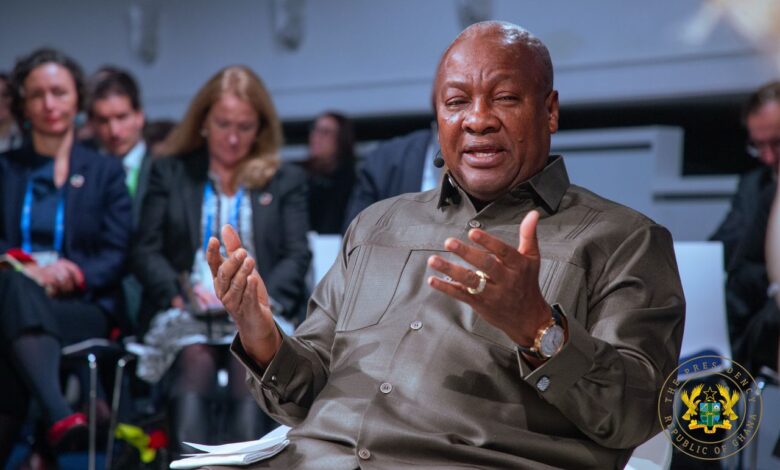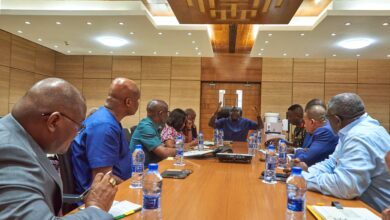
Munich, Germany – President of the Republic of Ghana, H.E. John Dramani Mahama, has revealed that his government will make adjustments to the national budget following the cancellation of USAID funding by the United States of America.
According to him, while USAID has significantly contributed to various African sectors, including education and security, its cancellation should serve as a wake-up call for Africa to become more self-reliant.
Speaking at the Opening Townhall Meeting of the Munich Security Conference, President Mahama acknowledged that the health sector would be one of the most affected areas, as a substantial portion of USAID funding was allocated to it.
However, he assured that budgetary adjustments would be made to mitigate any negative impact.
“In the health care space, which amounts to the biggest chunk of it, is about $78 billion or so, and so we’re going to make adjustments in the budget,” he said.
The President further explained that the timing of the budget presentation allowed for necessary modifications to accommodate the shortfall in U.S. assistance.
“Happily, when we have elections, we don’t present the budget until the new government takes over, and so we’re supposed to present the budget in March. So it’s possible for us to make provision to what the shortfall in US assistance is going to be,” he stated.
President Mahama emphasized that the cancellation of USAID should be seen as both a challenge and an opportunity for Africa to foster self-reliance.
“I believe that it’s adversity and opportunity and must teach Africa to become more self-reliant,” he said.
He stressed the importance of ensuring that vulnerable populations are not left behind in the process of budgetary adjustments.
“This goes to help the most vulnerable in our society, and so in making those adjustments, we must learn how to take care of our vulnerable and make sure that they are able to be included in the growth that is taking place,” he added.
President Mahama also acknowledged the significant role the United States has played in shaping the post-World War order but noted that the country is now reassessing its global commitments.
“I think that the US played a very critical role in the post-World war Order, and that post-World war Order has benefited the whole globe, including the US. But it’s gotten to a stage where it wants to recalibrate, and it has a right to recalibrate. But I believe that the recalibration should be in a less disruptive manner than what we are seeing now,” he remarked.
He cautioned that the withdrawal of USAID could diminish the soft power influence the U.S. has long enjoyed in the world.
“What the US is going to lose is that soft power it has wielded in the world. I mean, these are people who are grateful for the kind of assistance that they get. And so for us to decide that, no, we don’t want to have anything to do with it anymore, then they lose some of that soft power,” he explained.
President Mahama highlighted that Africa has other global partners and will continue to collaborate with different nations in an increasingly multipolar world.
“But it means that there are many other partners, USA are not the only partners, and so we’ll continue to collaborate with other countries. And that’s why we have a multipolar world. We are no longer a unipolar world,” he said.
He acknowledged that while some bridges are being burned, new partnerships are being forged, and the world must adapt to these changing dynamics.
“And so as bridges are burning, new bridges are being formed, we need to look for those new bridges and be able to link the world on those new bridges,” he noted.
Despite the funding withdrawal, President Mahama praised the U.S. for its longstanding reputation and influence in the developing world, cautioning that other nations may step in to fill the gap left behind.
“US is very well admired in a lot of the developing world, you know, for the kind of assistance that it gives. And so if it decides that it’s withdrawing, I think that there are many other countries that can fill the gap,” he stated.
He concluded by reiterating that, beyond finding alternative sources of funding, Africa must take this as a signal to build long-term self-reliance, especially in caring for vulnerable populations.
“But, aside from filling the gap, I think that it sends a signal to Africa that a time has come for us to be more self-reliant when it comes to issues to do especially with the vulnerable in our society,” he emphasized.
Story by: Emmanuel Romeo Tetteh (#RomeoWrites


